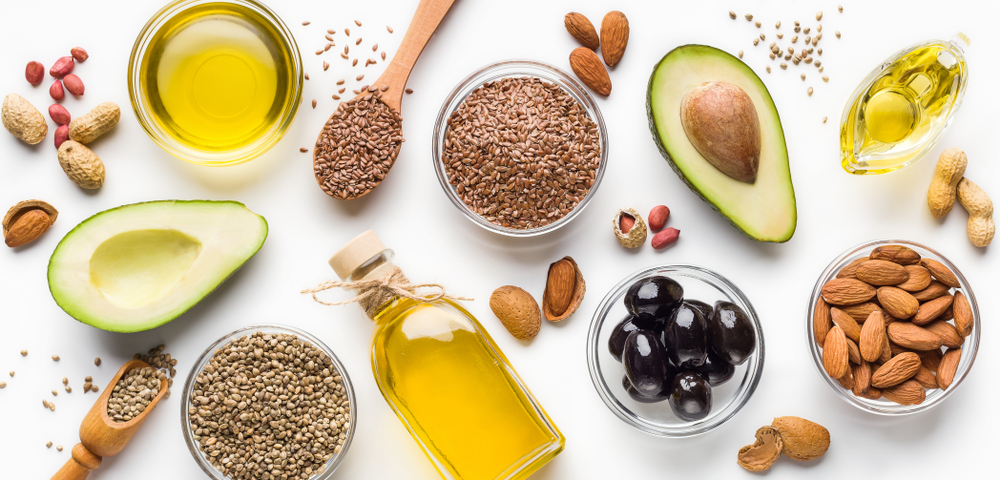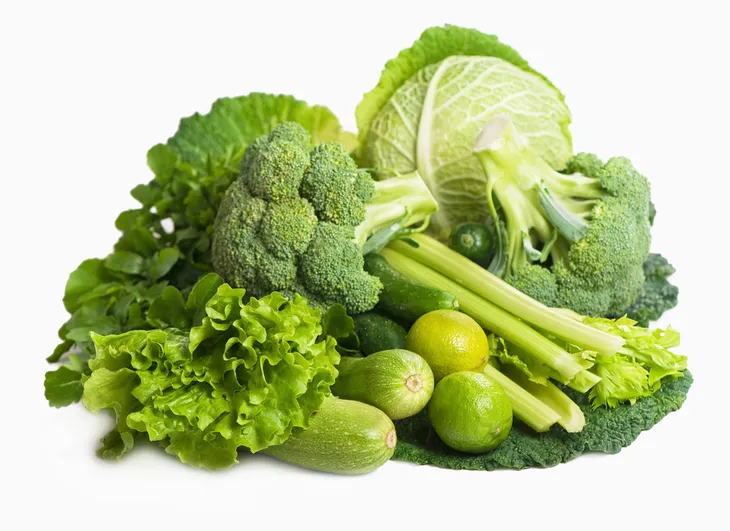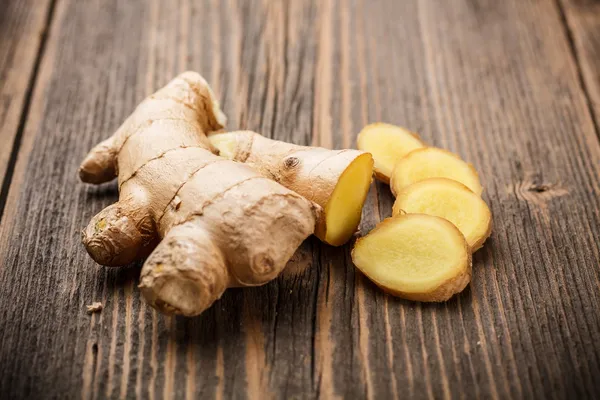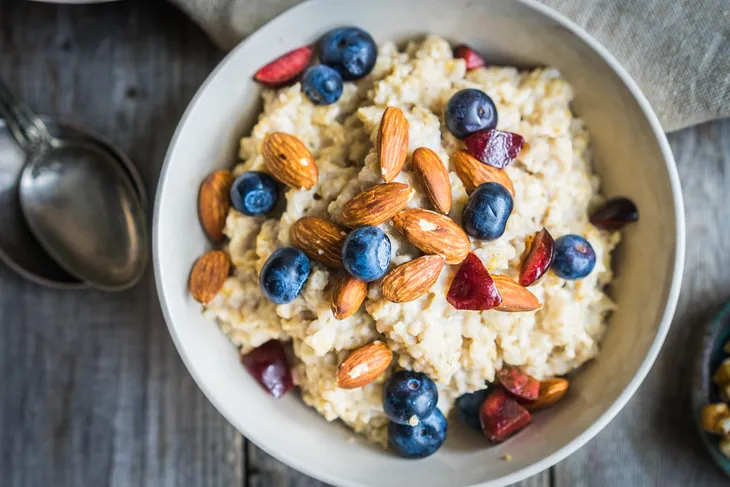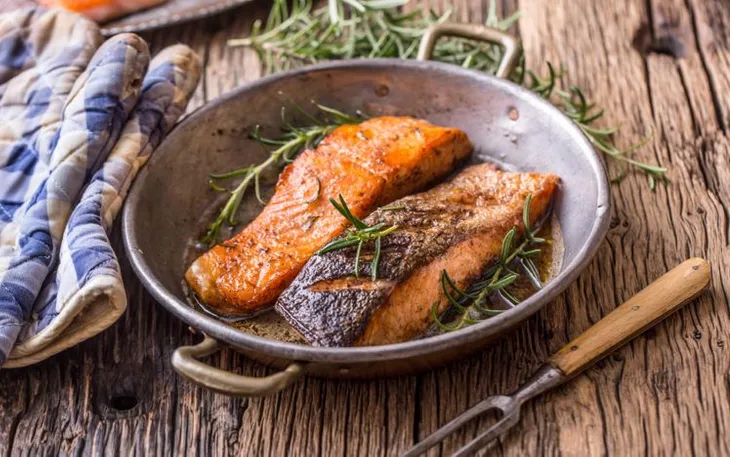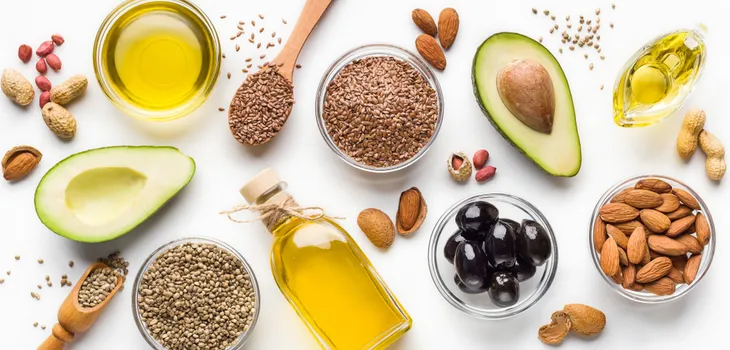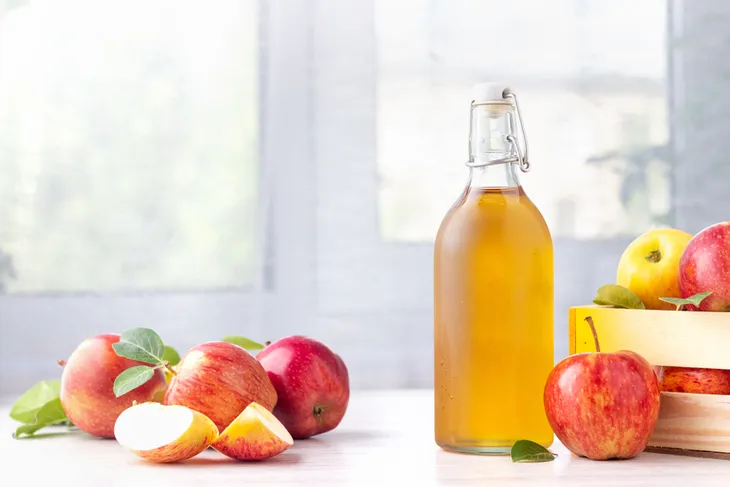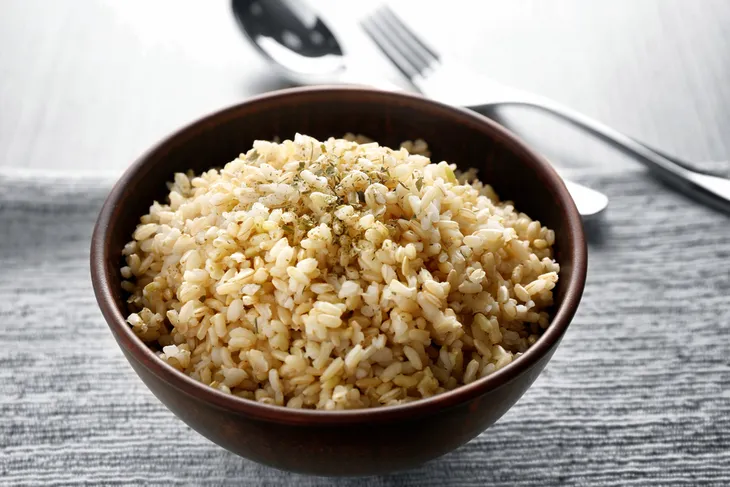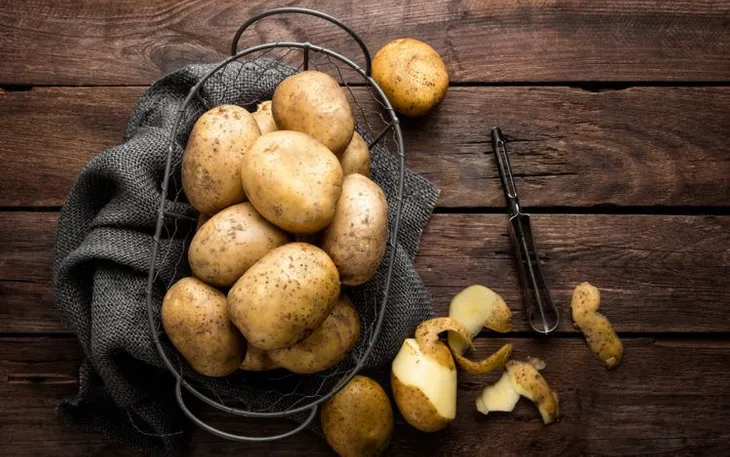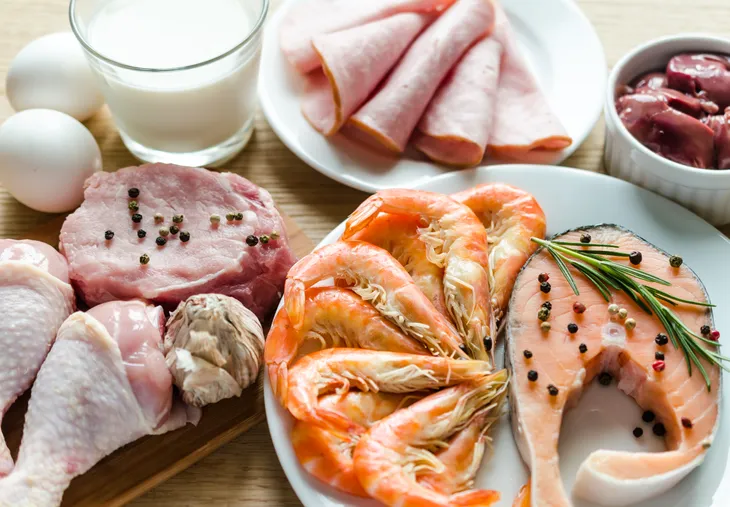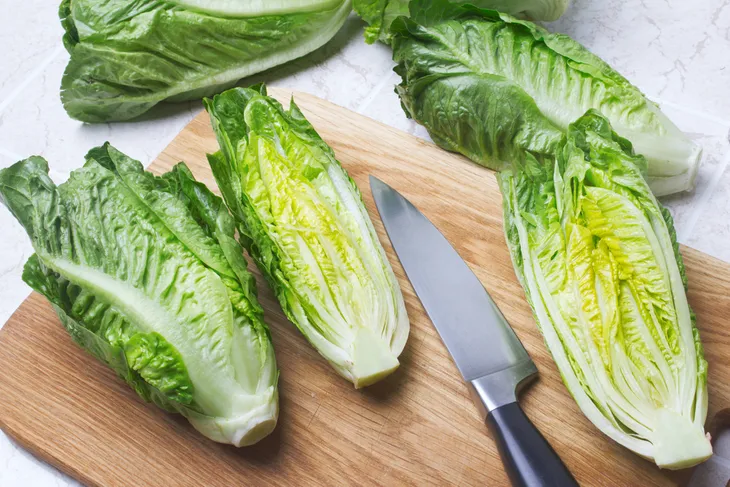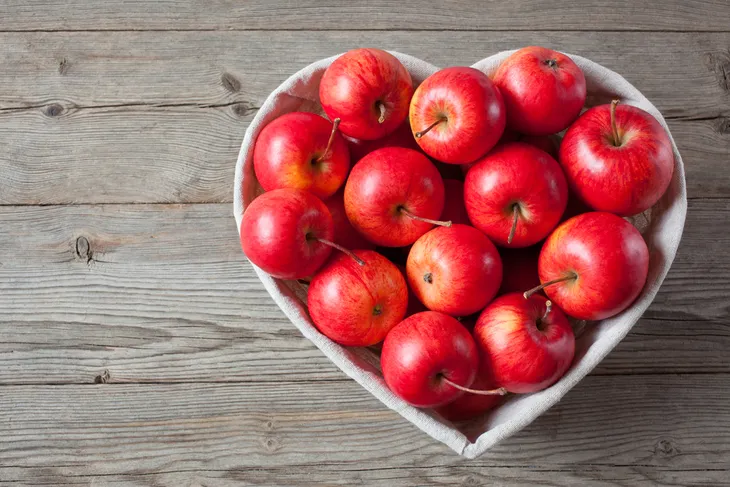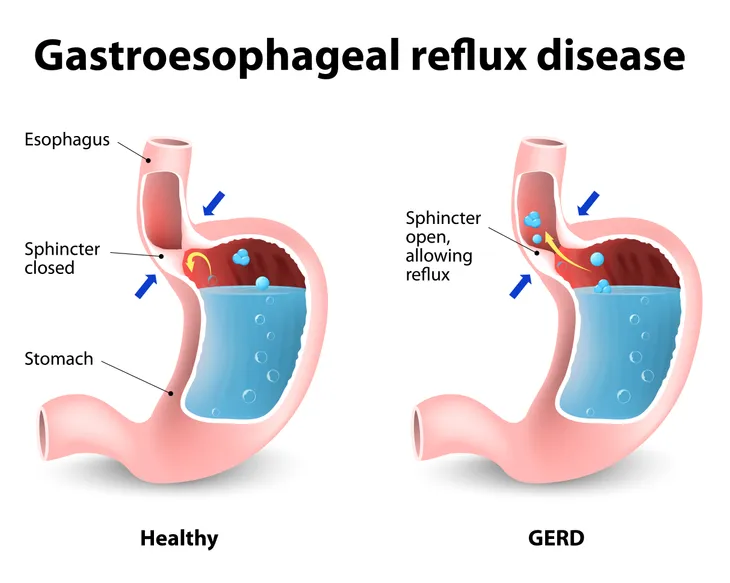Gastroesophageal reflux disease, referred to as GERD for short, is a digestive disorder where the stomach acid backflows into the esophagus. According to Healthline, this occurs when a valve known as the lower esophageal sphincter (LES) is weakened or damaged.
It is quite a common condition, affecting approximately 7 million people in the United States alone. And while there is no quick cure for GERD, eating certain foods can help with its symptoms by controlling the amount of acid the stomach produces—including these 20.
Vegetables
Due to their low fat and sugar content, vegetables are effective at reducing the amount of stomach acid that is produced. Almost all colors and varieties are beneficial, but Dr. Axe says that “artichoke, leafy greens, carrots, squash, sweet potatoes, asparagus, green beans, peas, cucumber and fennel” are especially so.
Health.com adds that celery is also a good food choice to combat acid reflux due to its high water content, as is parsley, which “has been used as a medicinal herb to settle the stomach and aid digestion.”
Ginger
Due to its natural anti-inflammatory properties, ginger is also considered to be effective at treating heartburn and other digestive issues. We suggest eating it candied, drinking it in tea, or taking it in supplement form after a meal. Dr. Axe also points out that adding turmeric to your diet may also offer similar benefits.
Oatmeal
Oatmeal a nutritious and filling breakfast food. As a whole grain food, it offers an excellent source of fiber. According to Medical News Today, “Fiber in the diet has been linked to fewer GERD symptoms,” so it’s important to ensure you’re consuming an adequate amount.
Non-Citrus Fruits
Many fruits are also an excellent source of fiber, as well as certain carbohydrates that are beneficial for reducing symptoms of GERD. According to GICare.com, these include apples, berries, melons, bananas, peaches and pears.
Health.com notes, however, that in a small percentage of cases (approximately 1 to 2 percent) bananas and melon may worsen a person’s acid reflux.
Salmon
Salmon is not only an excellent source of protein, but it also contains omega-3 fatty acids. According to Gerd-Diet.com, some people have found that “adding omega-3s to their GERD diet significantly reduced GERD symptoms.” This is not the case for everyone, however, so it’s important to be mindful of your body’s reaction after consumption.
Egg Whites
Eggs have also been found to reduce GERD symptoms, although Healthline notes that you should “stay away from egg yolks, which are high in fat and may trigger reflux symptoms.”
Again, this is not the case for everyone, as Dr. Axe says that some people experience worsened symptoms after eating egg whites, “which can trap air inside the GI tract.”
Healthy Fats
While certain fats—like saturated and trans fats—can worsen the symptoms of GERD, healthy fats can help to mitigate them. One type of healthy fat is known as monounsaturated fats, which the International Foundation for Functional Gastrointestinal Disorders says come from sources such as olive oil, avocados, and a variety of nuts and seeds.
Polyunsaturated fats are another type, which the source says can be found in oils from safflower, flaxseed and walnut; in soy sources like tofu; as well as in fatty fish like salmon and trout.
Yogurt
AARP reports a number of benefits to eating yogurt in treating acid reflux. This food works to boost the immune system since it contains probiotics. It’s high in protein which can help your ability to digest food. It can also provide a soothing effect to help manage stomach discomfort. Enhance the yogurt’s ability to treat acid reflux by adding in some ginger that can act as an anti-inflammatory.
Low-Fat or Skim Milk
Cow’s milk can be a risky food for some people if their stomach is sensitive to significant amounts of fat. Full-fat cows milk can also worsen reflux symptoms. That being said, you don’t have to avoid milk altogether. Just opt for low-fat buttermilk or skim milk. It won’t necessarily help treat acid reflux, but milk drinkers will appreciate its gentler impact on their stomach.
Apple Cider Vinegar
There are people who swear apple cider vinegar helps with acid reflux. While it isn’t proven in research, it can’t hurt to try for yourself. Just put a small amount in warm water and drink it with meals. Make sure not to drink it at full concentration because this acid can irritate the esophagus.
Brown Rice
Another easy food that can help stop symptoms of acid reflux is brown rice. This whole grain is high in fiber and can help to absorb stomach acid. It’s also easy to make and can be prepared in so many ways. In addition to brown rice, other whole grain sources of fiber include whole grain breads, millet, quinoa, and couscous.
Potatoes
Another food that can help to relieve heartburn (a symptom of acid reflux) are potatoes. In fact, Healthline reports that consuming potatoes and grains is linked to a 42 percent lower risk of gastroesophageal reflux disease.
Side note: don’t cook them with onions or garlic since those can irritate your acid reflux.
Olive Oil
Although fatty foods can be aggravating for acid reflux, your body also needs fat to work properly. That’s why you should turn to olive oil instead of traditional favorites, butter or margarine. Keep in mind that olive oil is acidic which can worsen symptoms. Extra virgin olive oils have a lower acidity level, so it might be a better idea for you to cook with this type instead.
Water
It can become a habit to choose sugary drinks, juices, or alcohol throughout the day. But these beverages can irritate acid reflux and carbonated drinks can give you gas, which can make things worse. Water should always be the go-to drink for everyone. It’s essential for every bodily function and is the safest way to hydrate yourself with acid reflux.
Lean Meat
Due to their low fat content, lean meats like chicken, fish, and turkey can help to reduce the symptoms of GERD. Healthline suggests trying them grilled, broiled, baked, or poached.
Lettuce and Celery
WebMD says acid reflux can make you gassy, so the last thing you want to do is eat foods to make that symptom worse. Lettuce and celery are two healthy options you should try. Unlike beans or dried fruit, these foods are easy on the stomach and won’t cause more gas. Plus, they are low in calories and can help keep you hydrated thanks to its high water content.
Parsley
Even certain garnishes can help relieve acid reflux symptoms. For instance, parsley is a tasty green that has been used to settle stomachs and aid digestion for centuries. Consider adding this to your meals and see if it makes a positive difference on your health.
Red Apples
There are lots of health benefits you gain from eating apples such as reducing your risk for cardiovascular disease and reducing your risk of cancer. For anyone with acid reflux, apples contain calcium , magnesium, and potassium.
Healthline says these alkalizing minerals may help relieve symptoms of acid reflux. Choose red apples over green apples because they are less acidic and don’t generally cause an increase in symptoms.
Lemon Water
Another cozy drink that can neutralize stomach acid is lemon water. All you have to do is mix a small amount of lemon juice with warm water. Lemon juice is acidic, but mixing it with those ingredients has an alkalizing effect to sooth the stomach.
Find More Foods That Help Acid Reflux Online
Adjusting your diet is one of the best things your can do to treat your acid reflux. By implementing certain foods into your meals, you can help put your symptoms at bay. Learn more about what foods are GERD-friendly by starting a search online.
